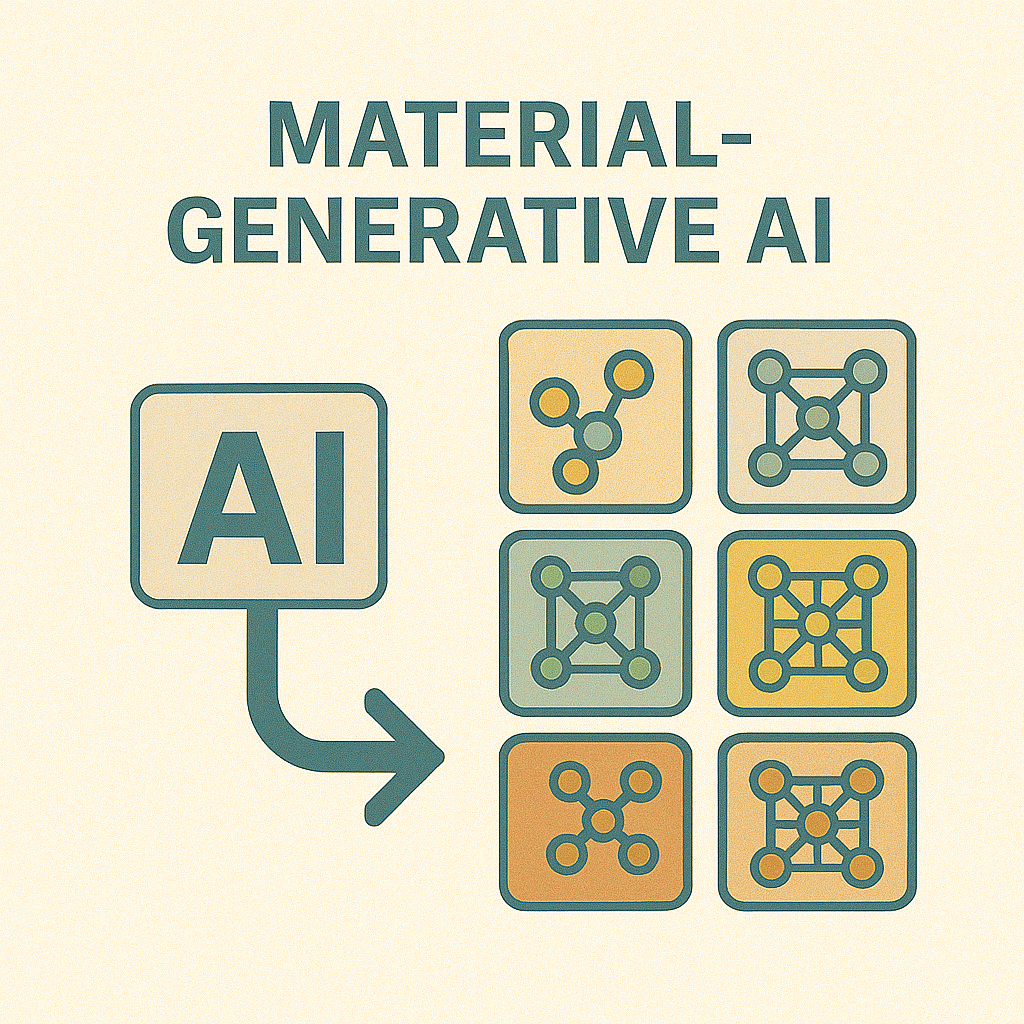Material-generative AI
Material-Generative AI for Inverse Design and Synthesis
Designing new materials with targeted properties is a central challenge in materials science. Traditional approaches rely heavily on human intuition, trial-and-error experimentation, and time-consuming computations. Our research group is pioneering the use of material-generative AI—a data-driven approach that leverages generative models to autonomously propose novel material candidates, such as crystal structures, that meet specific functional requirements. By formulating materials discovery as an inverse design problem, we aim to generate new compounds tailored to exhibit desired electronic, mechanical, or catalytic properties.
Unlike conventional high-throughput screening, material-generative AI learns the underlying structure-property relationships from large datasets and uses this knowledge to create chemically valid and physically plausible candidates. We utilize cutting-edge generative architectures—such as variational autoencoders, diffusion models, and graph neural networks—to explore the vast space of crystal structures efficiently. Importantly, our models are not only trained to generate materials but also to evaluate their synthesizability—a key factor in transitioning from computational discovery to real-world application.
Going a step further, our research also focuses on predicting synthesis pathways and experimental recipes for AI-generated materials. By integrating synthesis data, reaction thermodynamics, and retrosynthetic reasoning into our generative framework, we aim to provide actionable insights that guide experimentalists in realizing novel materials in the lab. This comprehensive approach holds the promise of accelerating the materials discovery pipeline—from idea to implementation—and aligns with our broader goal of enabling autonomous, AI-driven materials research.
-
Inverse Design for Materials Discovery from Multidimensional Electronic Density of States
Journal of Materials Chemistry A 12, 6004 (2024)
MaTableGPT: GPT-Based Table Data Extractor from Materials Science Literature
Advanced Science 12, 2408221 (2025)


